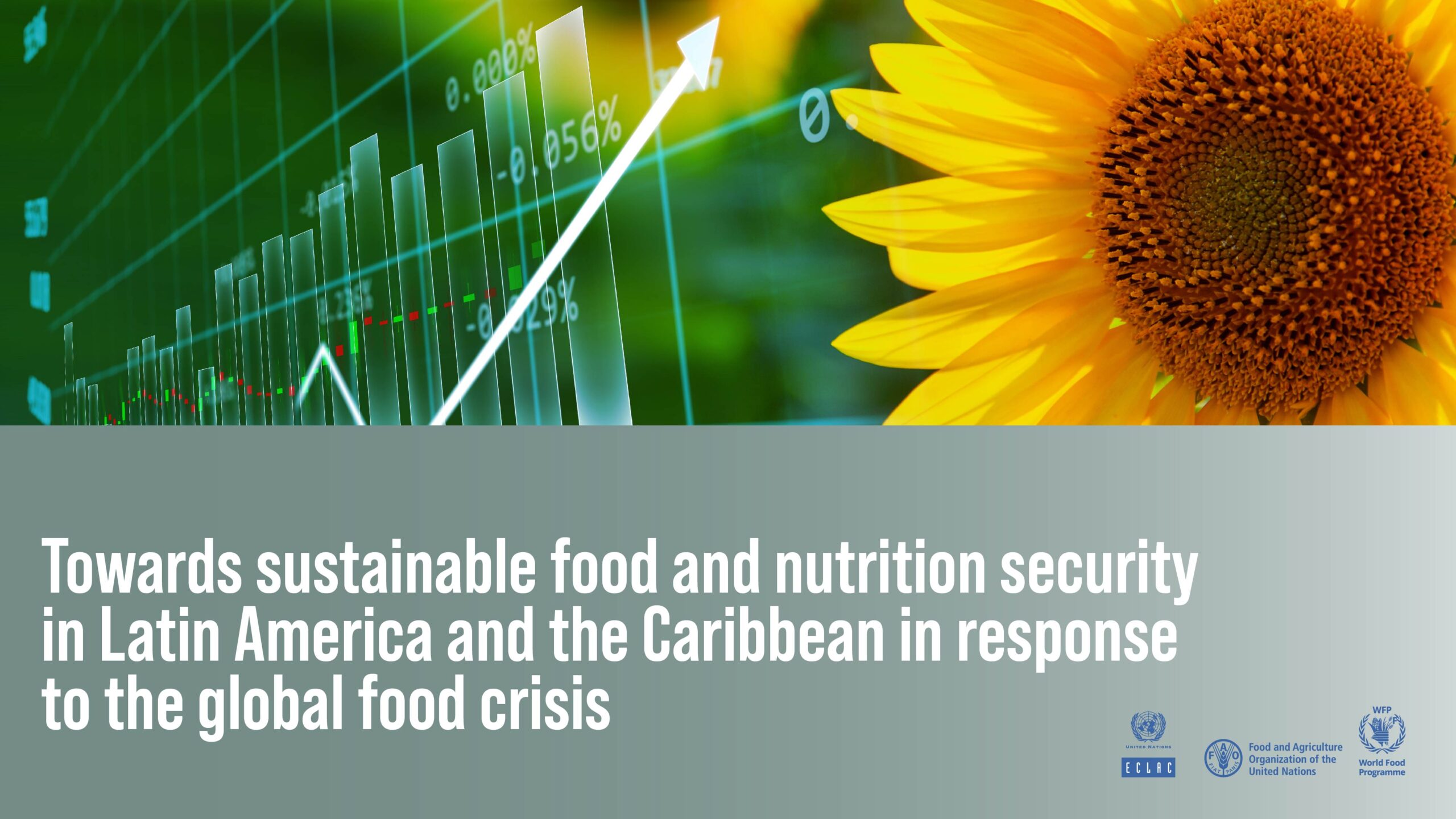 The World Food Programme (WFP), the Food and Agriculture Organization of the United Nations (FAO) and the Economic Commission for Latin America and the Caribbean (ECLAC) have presented a new joint special report, entitled Towards Sustainable Food and Nutrition Security in Latin America and the Caribbean in Response to the Global Food Crisis. The report aims to strengthen agricultural production and social protection systems, and extend their reach into rural areas, to respond to the challenge of combating food insecurity and extreme poverty and to support food production in the region.
The World Food Programme (WFP), the Food and Agriculture Organization of the United Nations (FAO) and the Economic Commission for Latin America and the Caribbean (ECLAC) have presented a new joint special report, entitled Towards Sustainable Food and Nutrition Security in Latin America and the Caribbean in Response to the Global Food Crisis. The report aims to strengthen agricultural production and social protection systems, and extend their reach into rural areas, to respond to the challenge of combating food insecurity and extreme poverty and to support food production in the region.
The document, available in Spanish and English, was released in Santiago de Chile at a press conference with the participation of Lola Castro, WFP’s Regional Director for Latin America and the Caribbean, Mario Lubetkin, FAO’s Regional Representative for Latin America and the Caribbean, and José Manuel Salazar-Xirinachs, Executive Secretary of ECLAC.
The report analyzes the international context and how successive crises, together with the war in Ukraine, are affecting Latin America and the Caribbean’s access to food and important supplies for regional agriculture. According to the study, the number of hungry people in the region has increased from 13.2 million to 56.5 million.
Lola Castro, WFP’s Regional Director for Latin America and the Caribbean, highlighted the importance of social protection systems, such as school feeding, in this scenario of increased food and nutrition insecurity fostered by different global crises. ” At the World Food Programme, we are accompanying national governments to identify and respond to these additional needs, by using and expanding social protection in a sustainable way, in addition to continually strengthening these systems’ preparedness, in order to leave no one behind” Lola indicated.
Furthermore, the study indicates that the active role that social protection systems played during the most critical phase of the pandemic needs to be reinforced to prevent the most vulnerable segments of the population, such as children and the elderly, from being irreversibly affected by the increase in food prices.




